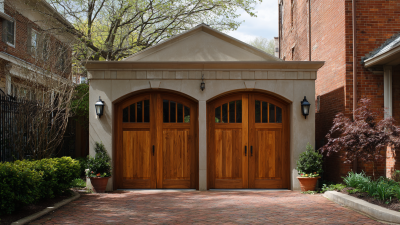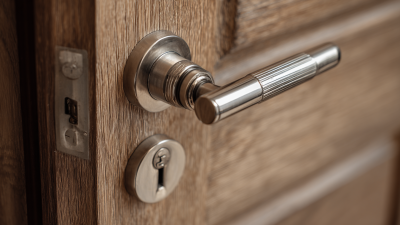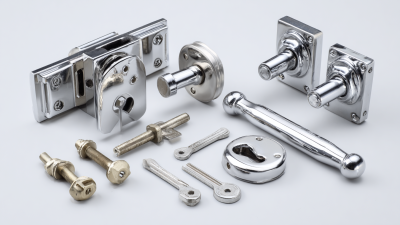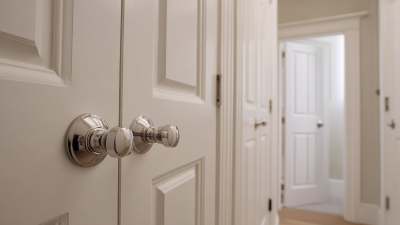Choosing the right commercial door supplier is a critical decision that can significantly impact your business operations and security. With the myriad of options available in the market, selecting a partner who understands your specific needs can be daunting. The right supplier not only offers high-quality products but also provides dependable service, ensuring that your entrances are both functional and aesthetically pleasing.
In this guide, we will explore the 'Top 10' factors to consider when selecting a commercial door supplier. From assessing the variety of doors offered to evaluating their customer service support, each aspect plays a vital role in ensuring that your business has the best solutions for its entrance requirements. By understanding these key elements, you can make an informed decision that aligns with your operational goals and enhances the overall security of your premises.

When selecting a commercial door supplier, it’s crucial to first identify your business's specific requirements. Consider factors such as security needs, door durability, and compliance with relevant regulations. According to a recent report by the National Fire Protection Association, over 80% of businesses that experience a significant fire incident never fully recover, emphasizing the importance of safety compliance in your choice of commercial doors. The Regulatory Reform (Fire Safety) Order 2005 mandates that business owners must ensure that all fire safety precautions, including proper door installations that facilitate safe evacuation, are in place.
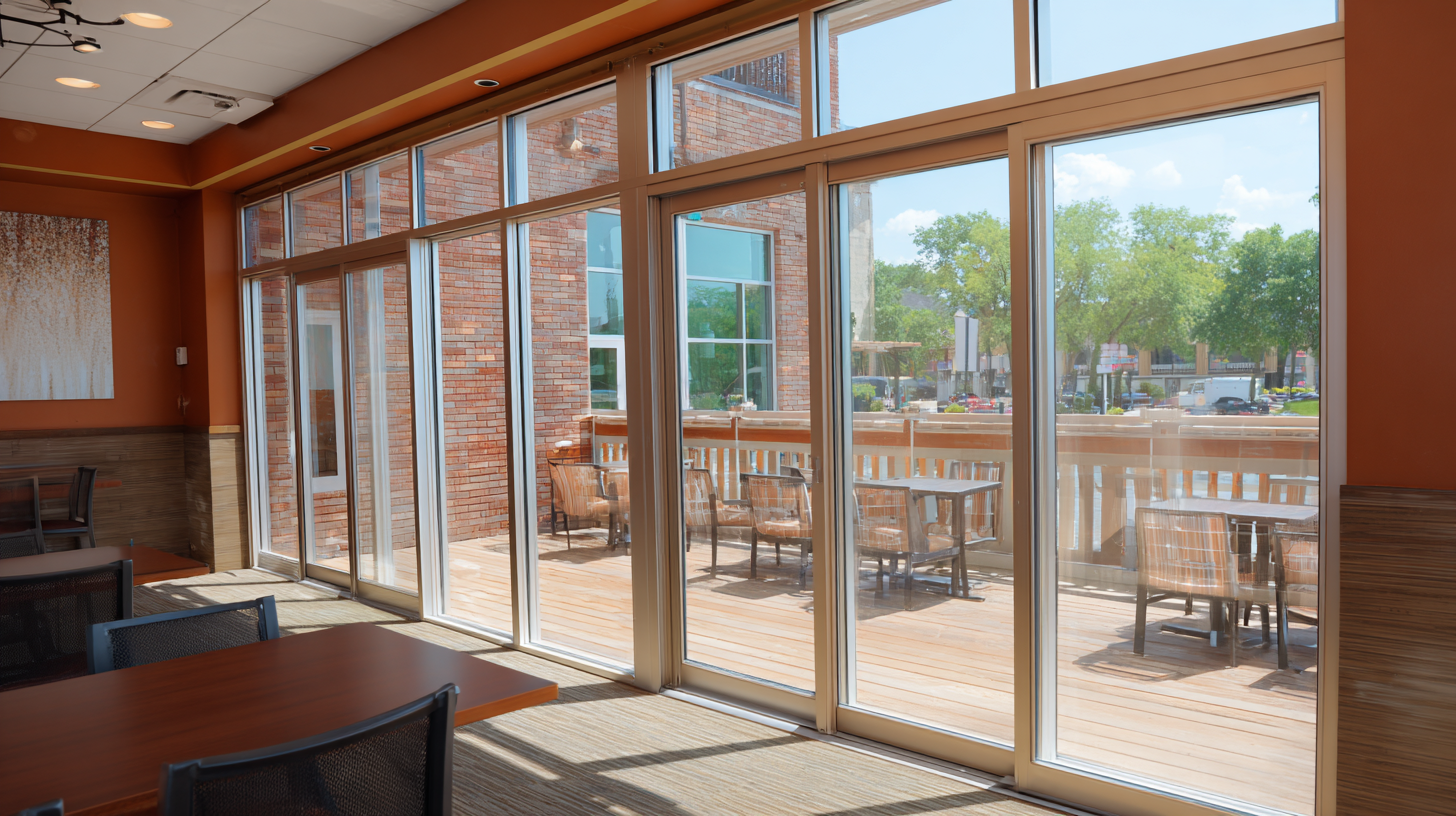
Moreover, different industries have variable needs, which can significantly influence the type of commercial doors you choose. For instance, businesses in high-traffic areas may require doors designed for heavy use, while those in secure environments might prioritize access control features. A comprehensive market analysis indicates that 62% of surveyed businesses cited security as their primary concern when selecting doors, underscoring the need for suppliers who can offer specialized solutions tailored to your sector's challenges. Evaluate potential suppliers not just on price but also on their ability to meet these critical operational and safety needs.
When selecting a commercial door supplier, evaluating the supplier's industry experience and reputation is paramount. A supplier with a robust track record can provide insights into market trends and innovations, which is crucial in today's rapidly evolving business landscape. For instance, the technology industry is projected to grow significantly by 2025, with increased investments in areas such as IT and artificial intelligence. This growth indicates that suppliers who are adaptable and forward-thinking can help businesses stay ahead of their competition.
**Tips:** Look for suppliers who have been in the industry for at least five years and have consistently adapted to technological changes. Research their client base and ask for case studies or testimonials that demonstrate their ability to deliver quality products.
Moreover, industry evaluations like those conducted by market research firms can be instrumental in determining a supplier's reputation. For example, recent reports highlight the importance of sustainable supplier evaluation under due diligence acts. A supplier that adheres to these regulations not only demonstrates ethical practices but also enhances their credibility.
**Tips:** Verify if the supplier complies with relevant due diligence legislation and consider their commitment to sustainability as a key criterion in your selection process. This ensures you partner with a reputable provider that aligns with your business values and needs.
This chart illustrates the years of industry experience among different commercial door suppliers. Evaluating their experience can help businesses make informed decisions for their needs.
When selecting a commercial door supplier for your business needs, one critical aspect to consider is the product quality and material options. The quality of materials used in door manufacturing can significantly impact durability, security, and overall aesthetic appeal. According to recent industry reports, over 60% of businesses prioritize material quality when choosing suppliers, emphasizing the need for robust and reliable products.
Suppliers that offer a range of materials, including wood, steel, and fiberglass, typically provide better customization options to meet diverse business requirements.
Tips for evaluating suppliers include requesting samples to assess material quality firsthand and reviewing product specifications for compliance with industry standards. Furthermore, consider suppliers who provide transparent information regarding sourcing and manufacturing processes, as this can be indicative of their commitment to quality.
Another important factor is customer support and service. A supplier's ability to respond quickly to inquiries and provide installation assistance makes a significant difference, especially in fast-paced real estate markets where the demand for efficient solutions is rising.
Statistics show that businesses that receive prompt customer service are 40% more likely to repurchase from the same supplier. Prioritizing these aspects will ensure that you choose the right commercial door supplier conducive to your growth and operational needs.
When selecting a commercial door supplier, assessing customer service and support is crucial. Strong customer service can significantly impact your business, particularly if you encounter issues with products or require timely delivery. A supplier that prioritizes customer relations is more likely to provide quick responses to inquiries and effective solutions to problems. Look for suppliers who offer dedicated support teams, as they can assist you with everything from product selection to post-installation maintenance.
Evaluating the quality of a supplier's support extends beyond communication. Consider their willingness to provide training or resources that help you understand their products better. A supplier that offers comprehensive product information, installation guides, and troubleshooting resources demonstrates a commitment to ensuring your satisfaction. Furthermore, reading customer testimonials and reviews can offer insights into the support experiences of other businesses, helping you gauge whether a supplier truly values its clients. By prioritizing these aspects, you can make a more informed decision and choose a supplier that aligns with your business needs.

When selecting a commercial door supplier, understanding pricing and warranty terms is crucial for businesses to make informed decisions. Many suppliers offer a range of door solutions, but the costs can vary significantly based on material, design, and additional features. A recent industry report indicates that commercial doors can range from $500 to $2,200 or more, depending on these factors. Businesses should consider not only the upfront costs but also potential long-term savings associated with energy-efficient models.
In addition to pricing, warranty terms play a vital role in the selection process. Suppliers often provide warranties that can last anywhere from 1 year to 10 years, covering defects or premature wear. Engaging with reviews and customer feedback can reveal which suppliers are most reliable when it comes to honoring their warranties. According to a survey, 78% of businesses prioritize warranty coverage when choosing a supplier, underlining the importance of reliable service and support. Therefore, conducting thorough research on both pricing structures and warranty conditions will empower businesses to find a supplier that meets their unique needs.
